OUR ARMS
THE WOMEN FELLOWSHIP (WF)
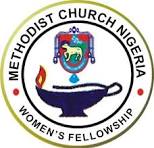
The Methodist Church Nigeria Women's Fellowship (WF) stands as a testament to the power of organized female agency within a major religious institution.
The Pre-Fellowship Era: Foundations of Women's Work (Pre-1932)
The seeds of organized women's work within Nigerian Methodism were sown long before the formal establishment of the fellowship. These early efforts were part of a broader missionary mandate, emanating from the Wesleyan Methodist Missionary Society (WMMS) in England. In 1858, the WMMS formed a Ladies' Committee with the specific aim of promoting "female education" in foreign mission fields. This initial focus on education was later expanded to include medical work, leading to the committee's evolution into the "Women's Auxiliary of the WMMS" by 1893... (full paragraph continues exactly as provided)
The Formal Foundation: The Birth of the Methodist Women's Fellowship (1932)
The formal establishment of the Methodist Women's Fellowship Nigeria in 1932 marked a pivotal moment in the history of women's ministry in the country... (full text continues)
Evolution and Expansion: From Clergy Wives to a Grand Fellowship
The leadership of Mrs. Comfort Eugenia Anike Williams and her fellow pioneers turned the fellowship into a "powerful organisation"... (full text continues)
DAUGHTERS OF WESLEY
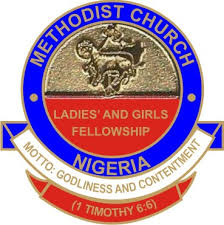
The Wives of Presiding Officers at each hierarchy assumes the position of the President... For D/Line Diocese, the President of the Women Fellowship is Mama Uduak Ime Ekpenyong.
THE MEN FELLOWSHIP
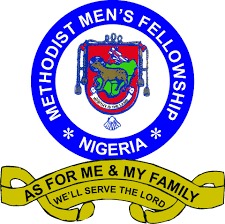
The history of Methodism in Nigeria provides the foundational context for understanding the emergence and role of the Methodist Church Nigeria (MCN) Men’s Fellowship... (continue full provided text)
The Genesis: The 1994 Inauguration
The history of Methodism in Nigeria provides the foundational context for understanding the emergence and role of the Methodist Church Nigeria (MCN) Men’s Fellowship. The Wesleyan Methodist Church missionary, Thomas Birch Freeman, is credited with establishing Christianity in Nigeria with his arrival in Badagry on September 24, 1842. From the initial mission stations in Badagry and Abeokuta, Methodism expanded across the western and northern regions of the country. A separate Primitive Methodist Church mission, originating from Fernando Po in 1893, spread to the eastern and other northern parts of Nigeria. These two independent districts—the Western Nigeria District and the Eastern Nigeria District—operated separately until their unification in 1962, which established the Conference of Methodist Church Nigeria. This institutional consolidation laid the groundwork for the modern church, which has since adopted an episcopal system and continued to expand its departments and mission-oriented activities. The Genesis: The 1994 Inauguration
THE YOUNG MEN FELLOWSHIP (2011)
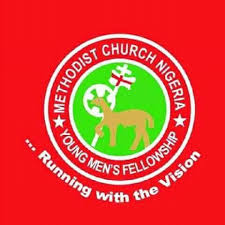
In 2011, the Methodist Church Nigeria undertook a significant strategic initiative by establishing the Young Men’s Fellowship... The President of the Young Men Fellowship in D/Line Diocese is Bro Felix Dumale Asah.
The Men's Work Department (2009)
The formalization of men's ministry received a crucial boost with the establishment of the Men’s Work Department in 2009. This department was created to serve as a central coordinating unit for all men's activities and to address the fellowships' spiritual needs. The timing of this initiative is particularly significant: it was created two years before the Young Men’s Fellowship. This chronological order suggests a fundamental shift in the church's approach. The establishment of a dedicated department and an advisory "men's work board" indicates a top-down decision to formalize, centralize, and professionalize all activities related to male members. This new structure provided the necessary administrative oversight and strategic planning to identify the need for and subsequently launch the Young Men’s Fellowship. The department's responsibility includes advising the fellowships, overseeing their operations, and formulating policies for their advancement. This structured, two-step process demonstrates a deliberate strategy for ministry development and capacity building.
Hierarchical Leadership and Governance Structure 3.1. The Three-Tiered StructureThe MCN Men's Fellowship operates within a clearly defined, three-tiered hierarchical structure that ensures effective governance and a coordinated approach to ministry. At the highest level is the Men's Work Department, which serves as the administrative and spiritual hub for all men's activities. This department is overseen by a Coordinator. An advisory and policy-making body, the Men's Work Board, works alongside the department to provide guidance and shape the direction of the fellowships.
The third tier consists of the two distinct fellowships: the senior Men's Fellowship (ages 46 and above) and the Young Men's Fellowship (ages 31-45). Each of these fellowships is led by its own elected President. This layered structure ensures a clear chain of command, accountability, and the ability to tailor ministry to the specific needs of each age group while maintaining institutional oversight. The model is replicated at the diocesan level, where key positions such as Diocesan Men's Fellowship President and Diocesan Men's Work Coordinator exist to manage local-level operations. Developmental Strides and Societal Impact Evangelism and Infrastructural Development
The Men's Fellowship is deeply involved in the core mission of the Methodist Church Nigeria, particularly in the areas of evangelism and infrastructural development. The fellowship actively engages in "evangelism and church growth activities by building worship centres in some dioceses". This direct involvement in church expansion is not a peripheral activity; it is a primary execution of the MCN's stated strategic goals, which include "The Great Commission" and "Infrastructural Development". By funding and constructing places of worship, the men's fellowship demonstrates its integral role in the physical and numerical growth of the church, moving beyond simple fellowship to active, mission-oriented ministry. Social Welfare and Community Engagement In addition to its evangelistic and building projects, the fellowship is committed to social welfare and community engagement. Its documented activities include "care ministries," "paying school fee for indigent members children," and "visiting the aged and the sick and orphanages". These initiatives underscore the fellowship's commitment to the holistic well-being of both its members and the wider community. This focus on social outreach parallels the mission of the MCN Women's Fellowship, which also engages in similar "social welfare or empowerment programmes" and addresses "medical/health care" and education. This parallel demonstrates a shared institutional philosophy that both gender-specific fellowships have a crucial, complementary role in holistic community development, not just internal spiritual matters. The men’s practical commitment to "paying school fee for indigent members" is a tangible demonstration of their dedication to family support and the future of the next generation. Internal Capacity Building The Methodist Men's Fellowship is not only focused on external projects but also on the internal cultivation of its human resources. The organization invests significantly in developing its members' skills and leadership potential. This is evidenced by initiatives such as the "Leadership seminar 1st and 2nd editions throughout the four regions in 2019 and 2021" and the "regional conventions for the two fellowships in 2017 and 2019". These projects are designed to empower members and prepare them for leadership roles within the church and society. By focusing on leadership training, the fellowship ensures its own sustainability and the continuous growth of its members, signifying a mature organization that is strategically focused on developing a strong, self-sustaining base of capable individuals. Foundational Principles of Men's Roles in the Home The role of the Methodist Men's Fellowship in "home building" is not explicitly detailed in the available documents , but it can be understood through the lens of foundational Christian principles and the fellowship's documented activities. In the Christian tradition, men are assigned specific biblical responsibilities, which include serving as spiritual leaders, providers, and protectors of their families. This theological framework guides the fellowship's ministry and informs how its members are expected to contribute to the family unit. The emphasis is on leading by example, fostering a family environment centered on faith, and taking responsibility for the family's overall well-being. At the Diocesan level, the President of the D/Line Diocesan Men Fellowship is Sir Nelson IhuomaTHE YOUTH FELLOWSHIP
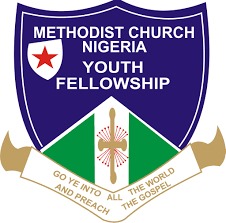
The presence of this dedicated department, with its broad supervisory mandate, represents a strategic move from a collection of independent youth movements to a centrally coordinated and standardized organizational arm. This structure enables the church to ensure a consistent vision, mission, and doctrinal approach across all its youth-focused initiatives. It ensures that the youth ministry is not an isolated function but a fully integrated part of the MCN's overall mission of spiritual and social development.
The Children & Youth Work Department
Today, the various youth and children's ministries of the MCN are overseen by a centralized administrative body known as the Children & Youth Work Department
CHILDREN MINISTRY
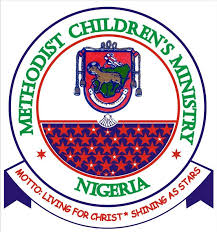
Hierarchical Leadership and Governance Structure The leadership of the MCN Youth Fellowship is structured to ensure effective oversight, coordination, and administrative efficiency. The hierarchy extends from the central conference level down to the individual dioceses, with a clear delineation of titles and responsibilities.
The Central Command: The Children & Youth Work DepartmentAt the highest level of administrative oversight for youth activities is the Children & Youth Work Department. This department is headed by a designated Coordinator. This role is administrative and supervisory, responsible for coordinating the activities of all the young people's organizations under its purview, including the Methodist Youth Fellowship and the Methodist Campus Fellowship.
METHODIST CAMPUS FELLOWSHIP (MCF)
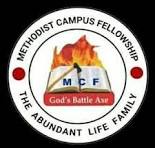
The centralization of authority under a single department and a designated Coordinator is a significant organizational feature. It suggests that while the individual fellowships may have their own presidents and committees, the MCN has chosen to maintain a strong, centralized administrative control over its youth ministries. This model differs from the more autonomous structure observed in other church fellowships. For instance, the Men's Fellowship and Women's Fellowship have national presidents and officers who appear to operate with a greater degree of independence, reporting to their respective departments.
